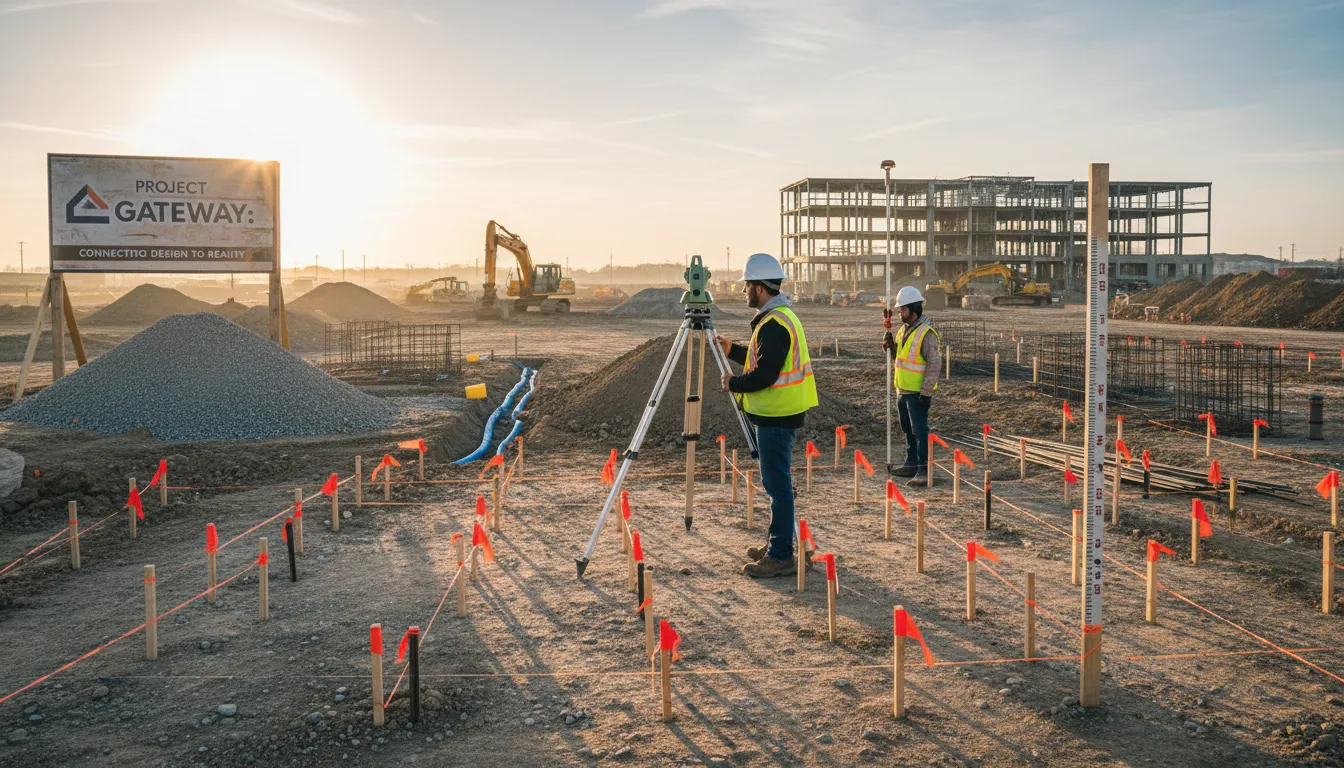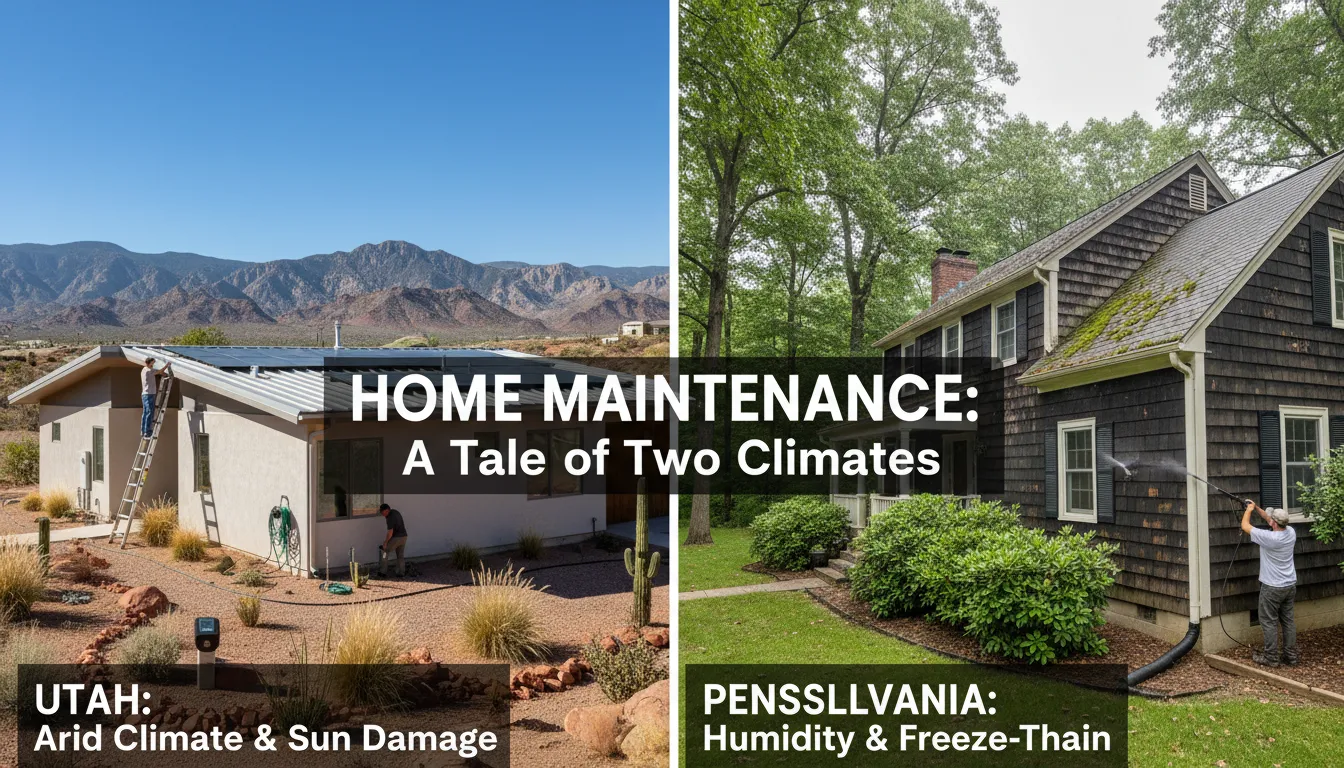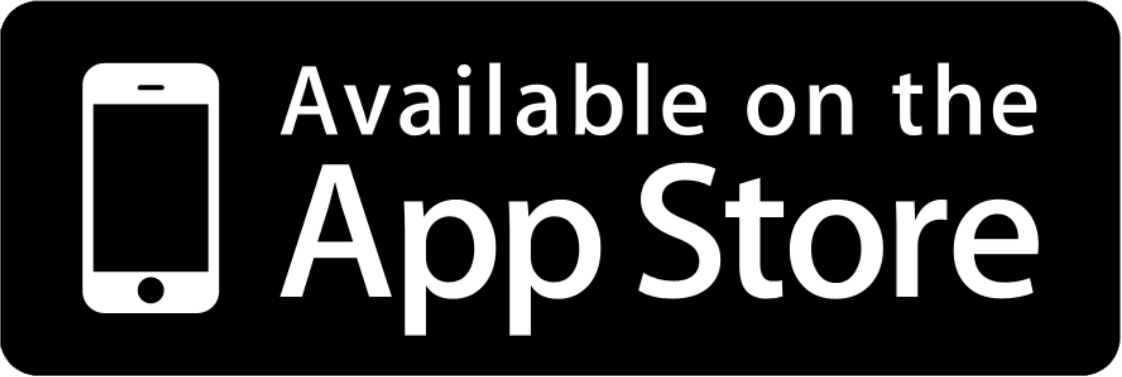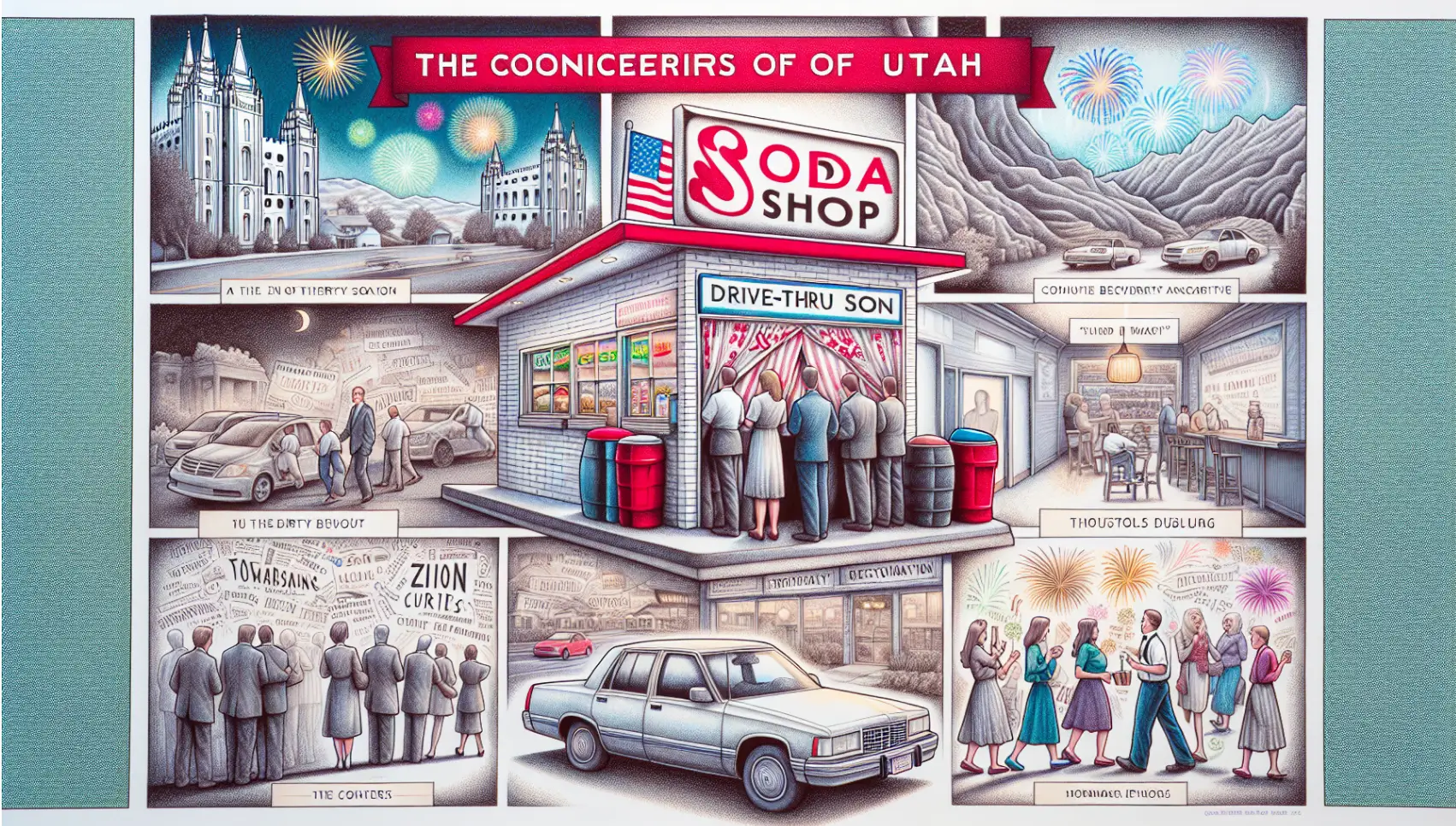
Utah is a state that defies conventional wisdom. Despite being one of the most Republican states in
the country, its policies and values often defy the typical partisan divide. Lets explore the unique
history, culture, and political landscape of Utah, shaped by over a century of Mormon influence.
The Peculiar World of Utah's Soda Shops
Utah's unique beverage culture is unlike any other in the nation. It all began with the advent of
drive-thru soda shops.
What is Dirty Soda?
Dirty soda is a carbonated drink mixed with syrups, creams, or juices to create a cocktail-like
concoction.
Instead of coffee or tea, Utahns flock to these shops for a sugary pick-me-up.
Swig's Dominance
In Salt Lake City, Swig, a leading dirty soda chain, has nearly as many locations as Starbucks.
- Swig's popularity
- Expansion to other states
Swig has expanded to Idaho, Arizona, Texas, Oklahoma, and Arkansas.
Liquor Laws and the Legacy of the Word of Wisdom
Utah's strict liquor laws are deeply rooted in the Mormon doctrine known as the Word of Wisdom.
The Word of Wisdom
This doctrine, revealed to church founder Joseph Smith, prohibits alcohol, tobacco, and hot drinks
like coffee and tea.
Impact on Alcohol Consumption
Until the 2002 Salt Lake City Olympics, public bars were technically not allowed.
- Private members clubs
- Temporary memberships
Zion Curtains and Other Regulations
Restaurants had to use "Zion curtains" to shield alcohol preparation from customers.
Waiters couldn't offer wine lists unless asked.
Current Laws
Today, Utah still has some of the strictest alcohol laws in America.
- 0.05% blood-alcohol limit
- Limited beverage options
These regulations continue to reflect the state's unique cultural and religious heritage.
Pioneer Day: Utah's Alternative to Columbus Day
Each July 24th, Utah celebrates Pioneer Day, a day honoring the arrival of the first Mormon settlers
in the Salt Lake Valley.
A Second Independence Day
Pioneer Day is marked with parades, backyard parties, and evening fireworks, making it feel like a
second Independence Day.
While the rest of the United States observes Columbus Day in October, Utah typically does not.
Why No Columbus Day?
Instead of celebrating European arrival to the Americas, Utah focuses on Mormon arrival to Utah.
This choice reflects the state's unique cultural and historical priorities.
The Blurred Line Between Church and State
In Utah, the separation between church and state can often appear unclear.
Released Time for Religious Education
Public high schools in Utah allow up to an hour of "released time" for religious education, upon
parental request.
These off-campus classes are technically not part of the public education system to avoid violating
the First Amendment.
Integration into School Schedules
Despite legal distinctions, LDS seminary classes fit seamlessly into the high school experience.
For instance, at Bonneville High School, the seminary is right across the street, and classes align
with the high school schedule.
Seminaries Adjacent to High Schools
It's almost impossible to find a high school in Utah without an adjacent seminary.
At Dixie High School, the seminary is centrally located, making it an unavoidable part of the
campus.
Utah's Surprising Political Landscape
Despite its strong Republican identity, Utah breaks many political stereotypes.
Urbanization and Party Affiliation
Utah is one of the most urbanized states in the U.S., with over 80% of its population living in the
Salt Lake City metro area.
This high urbanization rate contrasts with the typical Republican stronghold, which usually features
lower urbanization.
Republican Dominance
Utah has the second highest percentage of residents identifying as Republican in the nation.
Despite this, the state's policies and cultural attitudes often diverge from typical conservative
norms.
Comparison to Neighboring States
Utah's political landscape is unique even among its conservative neighbors like Idaho and
Montana.
It stands out not only for its urbanization but also for its progressive stances on certain
issues.
Explore Utah Real Estate

83 W 850 S, Centerville, UT
$815,000
Bedrooms: 5 Bathrooms: 3 Square feet: 3,999 sqft
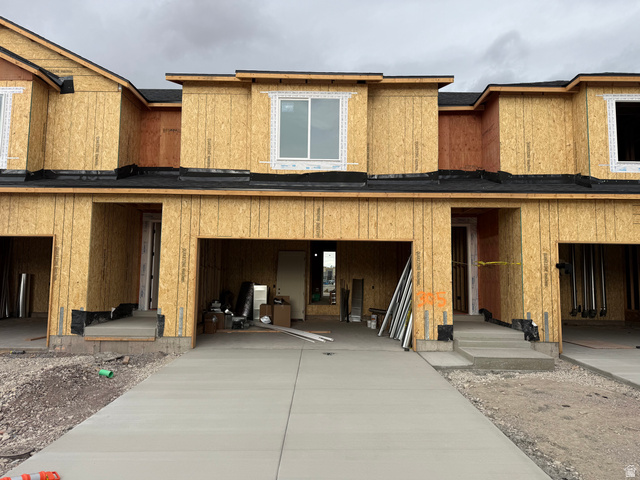
653 E RYEGRASS DR #305, Eagle Mountain, UT
$387,900
Bedrooms: 3 Bathrooms: 3 Square feet: 1,985 sqft

2031 N LAVA ROCK CIR #107, St George, UT
$4,185,000
Bedrooms: 4 Bathrooms: 5 Square feet: 5,404 sqft
Utah's Unconventional Stance on LGBTQ+ Rights
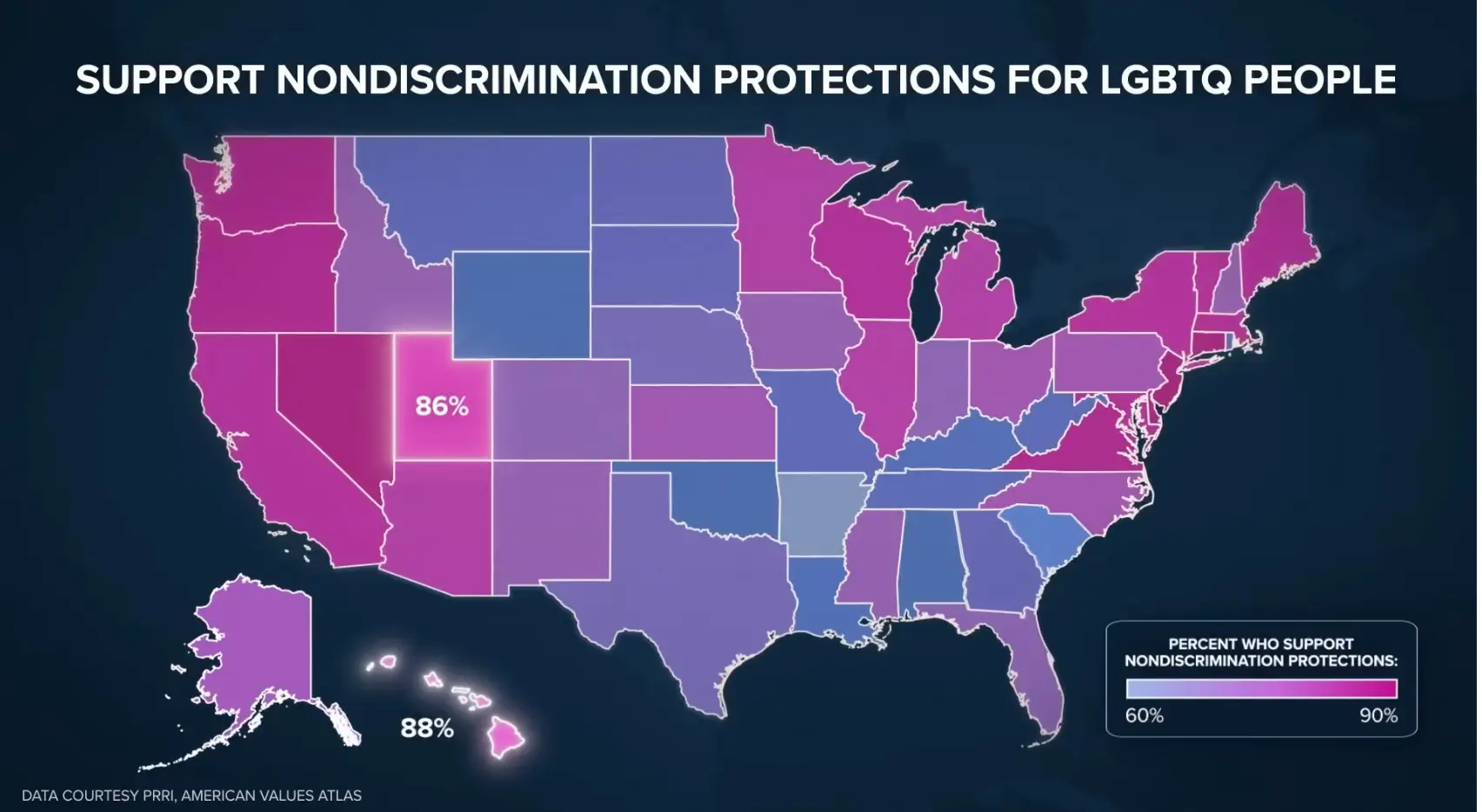
Utah's approach to LGBTQ+ rights is both surprising and progressive.
Support for Nondiscrimination
Utah ranks second in the nation for support of nondiscrimination protections for LGBTQ+
individuals.
86% of Utahns support legal protections against discrimination based on sexual orientation or gender
identity.
The Utah Compromise
In 2015, Utah passed SB296, expanding nondiscrimination protections for LGBTQ+ people.
This bill, known as "the Utah Compromise," had support from both the Republican party and the LDS
Church.
Religious Exemptions
The bill includes exemptions for religious organizations, allowing them to follow their own
policies.
For example, Brigham Young University can prohibit same-sex romantic behavior among students.
Continued Progress
In 2020, Utah became the first Republican-controlled state to pass additional LGBTQ+ protections.
This ongoing support highlights Utah's unique and evolving stance on LGBTQ+ rights.
Utah's Immigrant-Friendly Policies
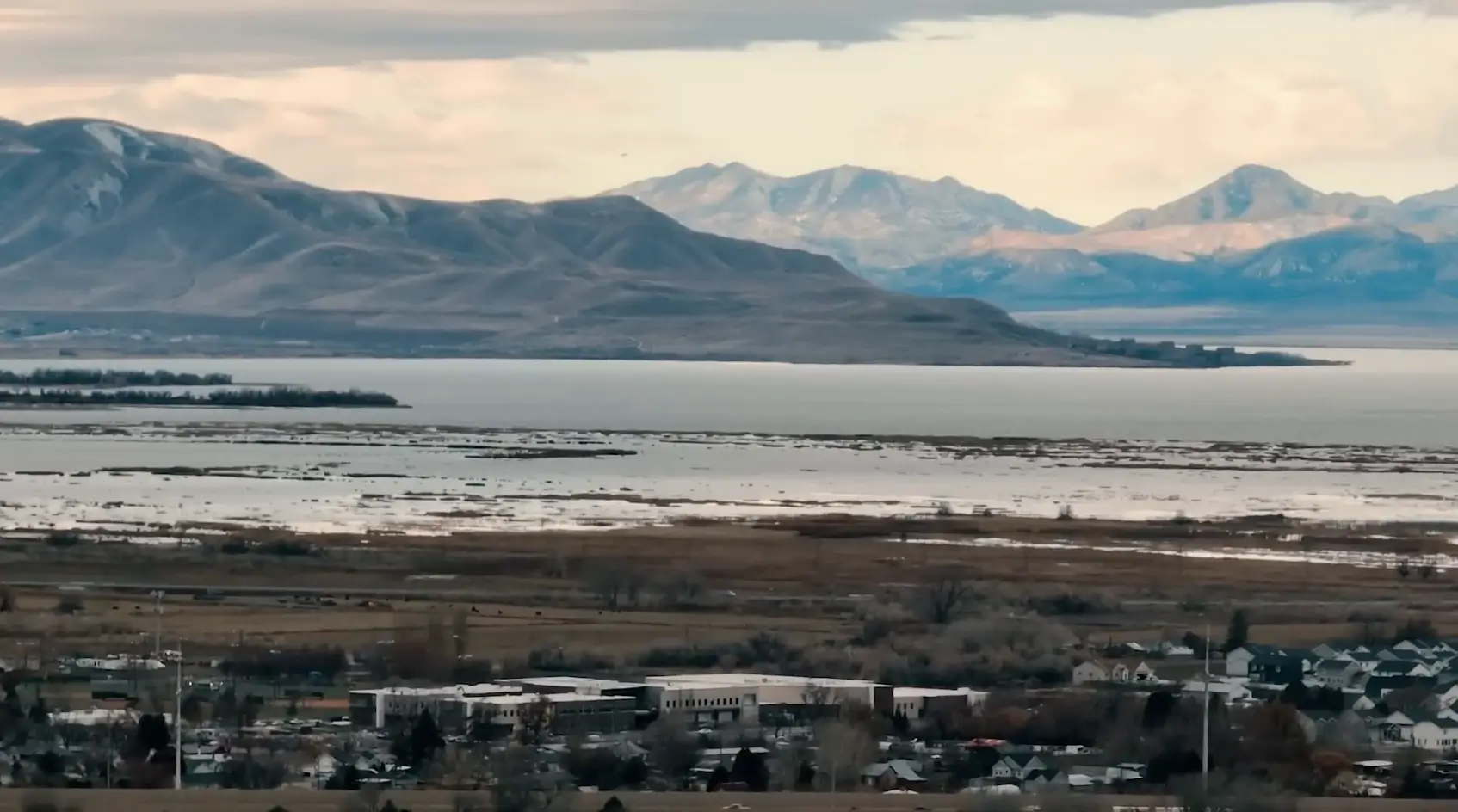
Utah stands out for its supportive stance towards immigrants, particularly undocumented ones.
Education and Licensing
In 2002, Utah allowed undocumented high school graduates to pay in-state tuition at public
universities.
By 2005, undocumented immigrants could obtain driver's licenses, making Utah one
of only twenty states with such a law.
Recent Legislative Actions
In 2019, Utah adjusted misdemeanor penalties to help undocumented immigrants avoid deportation.
By 2022, fewer employers were required to check new hires' immigration status.
In 2023, they expanded taxpayer-funded health insurance to certain children of undocumented
immigrants.
Sanctuary State Designation
In a memo, the US Immigration and Customs Enforcement's Salt Lake City office labeled Utah a "sanctuary
state."
Although Utah's leaders rebuked this label, it highlighted the state's nuanced approach to
immigration.
Conservative Yet Progressive
Utah passed a near-total abortion ban and banned transgender girls in women's
sports.
Despite these conservative actions, polls show broad support for gun-law reform, expanded sex-ed, and
free bus service in Salt Lake City.
Utah's policies break traditional partisan norms, creating a unique political landscape.
The Mormon Influence on Utah's Founding and Development
The founding of Utah was deeply influenced by the Mormon faith, which sought a place to build a
society based on its religious ideals.
Brigham Young's Vision
In July 1847, Brigham Young declared the Salt Lake Valley the place for a new Mormon settlement.
This decision was influenced by the region's relative isolation and agricultural potential.
Strategic Location
The Great Salt Lake area was largely uncharted and devoid of Anglo-American settlements, making it an
ideal refuge.
Young's followers saw it as a place to escape persecution and build a society reflecting their
beliefs.
City Planning and Design
Joseph Smith's 1833 plat map for the city of Zion influenced Salt Lake City's
layout.
Massive 660 x 660 foot blocks and wide 132-foot streets were designed to accommodate church and
municipal functions.
A Connected Community
Housing, agriculture, and public spaces were intentionally dense to ensure communal cohesion.
More Properties You Might Like
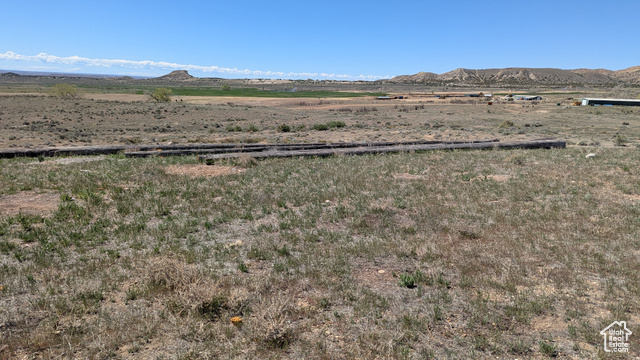
2098 E GOOSE RANCH RD, Vernal, UT
$103,000
Square feet: 274,864 sqft
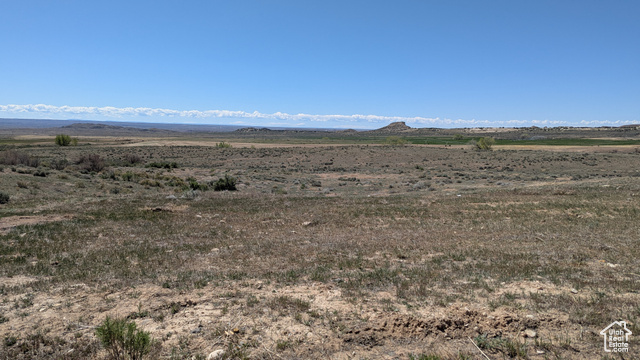
2148 E GOOSE RANCH RD, Vernal, UT
$116,000
Square feet: 309,276 sqft
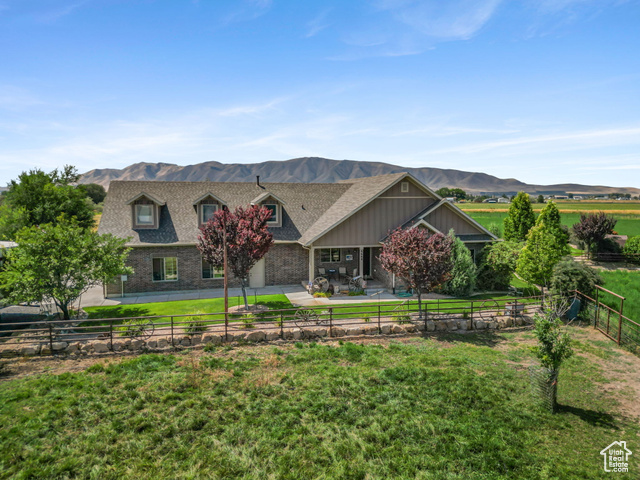
6668 S 3200 W, Spanish Fork, UT
$2,074,000
Bedrooms: 3 Bathrooms: 3 Square feet: 2,560 sqft
High standards for cleanliness and order were emphasized, reflecting the community's values.
Replicating the Model
Other Utah cities like Provo, Logan, and St. George adopted similar layouts.
Street names and city designs continue to communicate the religion's values.
The Quest for Statehood and Self-Sufficiency
Utah's settlers weren't just aiming to build cities; they had
grander visions of a self-sufficient Mormon state.
The State of Deseret
As the U.S. gained control of the Southwest from Mexico in 1848, Mormons found themselves back under
U.S. jurisdiction.
They faced laws that were harsh on their practices like polygamy but didn't protect them from
violence.
To ensure their safety and autonomy, they sought statehood, naming their desired territory
Deseret.
Building Self-Reliant Colonies
While lobbying for statehood, they also focused on self-sufficiency by establishing various
colonies.
St. George, for example, was part of a mission to grow warm-weather crops like cotton.
- Mantua: flax
- Minersville: minerals
- Coalville: coal
The Impact of the Transcontinental Railroad
In 1869, the transcontinental railroad arrived, bringing goods and people who weren't Mormons,
reducing the need for resource colonies.
Federal presence increased, ensuring the territory stayed connected to the nation.
Legacy of Self-Sufficiency
The towns and colonies founded during this era still exist, reflecting a legacy of self-sufficiency
and resilience.
Even as Utah embraced tourism, tech, and other industries, the state's unique founding principles
remain evident.
The Lasting Impact of Utah's Singular History
Utah's distinct history continues to influence its culture, politics, and social attitudes.
Tourism and Natural Parks
Utah has brilliantly marketed its natural parks and embraced tourism, drawing visitors from around
the world.
The state's ski industry and hosting of the Olympics further showcase its unique appeal.
Modern Cultural Peculiarities
Utah's differences, such as its unique beverage culture and strict liquor laws, may seem quaint but
are deeply rooted in its history.
These peculiarities are not random but stem from a shared set of experiences and beliefs.
Influence on Social and Political Views
Utah's stance on LGBTQ and immigrant rights is informed by a worldview shaped by its history and
theology.
The LDS Church supports certain rights but often only when they don't conflict with its own
doctrines.
The Pragmatic Approach of the LDS Church
The LDS Church's pragmatic approach aims to preserve and expand its influence without alienating
potential converts.
It supports some progressive policies to align with changing public sentiment, especially among
younger members.
Impact of Missionary Work
Mormon missionaries, especially those in Latin America, often return with more pro-immigrant
views.
The church recognizes that anti-immigrant stances would hinder its mission to convert new
arrivals.
Centralized Control and Inclusivity
The church's centralized control ensures that Utah's laws and policies often reflect its
interests.
This creates a state that can pass conservative laws but also adopts progressive stances when
beneficial.
Balancing Conservatism and Progressivism
Utah balances conservative laws with progressive policies, driven by the LDS Church's pragmatic
needs.
This unique blend makes Utah a state that defies typical political and cultural norms.
Related Articles:










